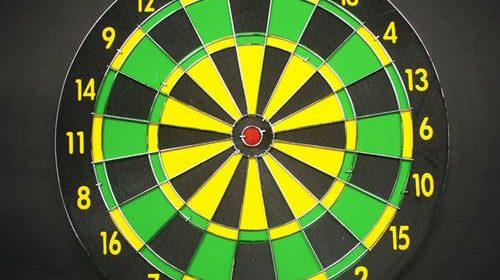As part of our endeavour to add value to the lives of our readers through meaningful and compelling articles, we are sharing the detailed concept of Lygometry. It can prove to be very beneficial for everyone including entrepreneurs. Let’s have a read!
What is Lygometry?
Lygometry is simply defined as a process of measuring things that we know we don’t know. It is a fairly new concept that’s coined by Amin Toufani, former chair of Singularity University. Some things that we know we don’t know include: what’s beyond observable universe? How many stars are there in the universe? What kind of life is there at the bottom of the ocean? How were the Pyramids built? So you get a fair idea of what kind of things I am talking about. Although these things are spread across various timelines and have no connection to each other, lygometry can be applied to your business in a more organized way to help you progress . Before we get to how, let’s answer why. Why do we even need to consider lygometry in business?
As an entrepreneur, you have to deal with a lot of things that fall both inside and outside your expertise. And sometimes you don’t have enough margin to commit errors. Specially when you are starting anew, there are a lot of things in your business that you haven’t even figured out. Every process is open and haywire in a business. As the company grows, people are hired to bring in structure, unison and an organized operational system. But fine-tuning operations, or as a matter of fact, any aspect of a business is an ongoing process. You figure things out as you go and many times fail along the way in doing that. And failures teach a lot of important lessons in building a company but sometimes at the cost of money, people and peace of mind. Lygometry has the ability to soften these bleedings.
As stated above, Lygometry is the process of measuring things that we know we don’t know. As every business measures their growth with their KPIs, it would be counter intuitive to also measure things that we don’t know.
This helps you to figure things out in a budget. Let’s take an example of a new fintech startup ‘Finpub’. Imagine Finpub launched their operations in just 1 country about an year ago and they are planning to expand beyond the borders. The typical questions they would ask would be: What countries can we expand to? What countries have very few legal compliances? How much would it be to start in each country? How much should we raise in the next round so that we are able to expand in EU or Oceania or Africa or Asia? Which market is more attractive and easy growth market? Does Finpub have any competitors in the respective countries? And these questions could go on and on. To answer each one of them could be very overwhelming. For example, if you would like to see which country has few legal compliances, you would literally have to sort through a ton of rule books and documents or hire some expensive accountants and lawyers to do it for you. How would Lygometry help here? Since we are looking for things we know we don’t know, we are able to shrink down the list of questions and make it less overwhelming. In the case of finding out the legal compliances about other countries, Lygometry helps you to know that that’s one of the things you don’t know and in order to know it, you’ll have to find credible lawyers/accountants. So your question will come down to do we know any credible lawyers?. If you don’t, then the next Lygometric question to ask would be ‘How much would Finpub have to raise or shell out in order to get those people on board?’ You see Lygometry shrinked down our questions to the core. Simply put, when you start measuring things that you know you don’t know, you will know where to start finding the answers to them.
Lygometry works in unison with the theory of backward induction. When you track the things you know you don’t know, it’s easy for you to work on them backwards. Reverse Engineering has proven to save a lot of experimental time and money. And nothing is more valuable for a startup than saving these resources.
Related Video:
Let’s add some value! Share this article with your friends, colleagues and entrepreneurs!
Subscribe to our magazine for more such meaningful articles.


